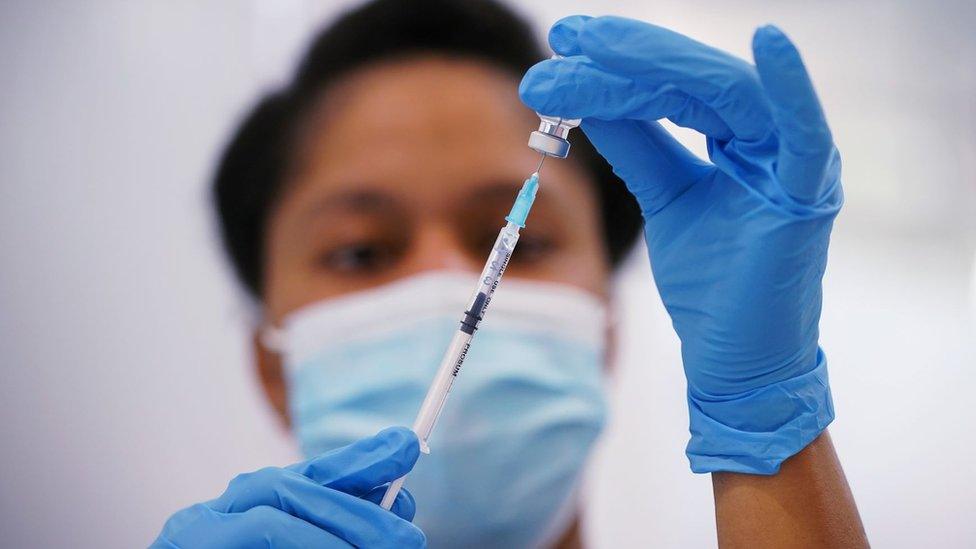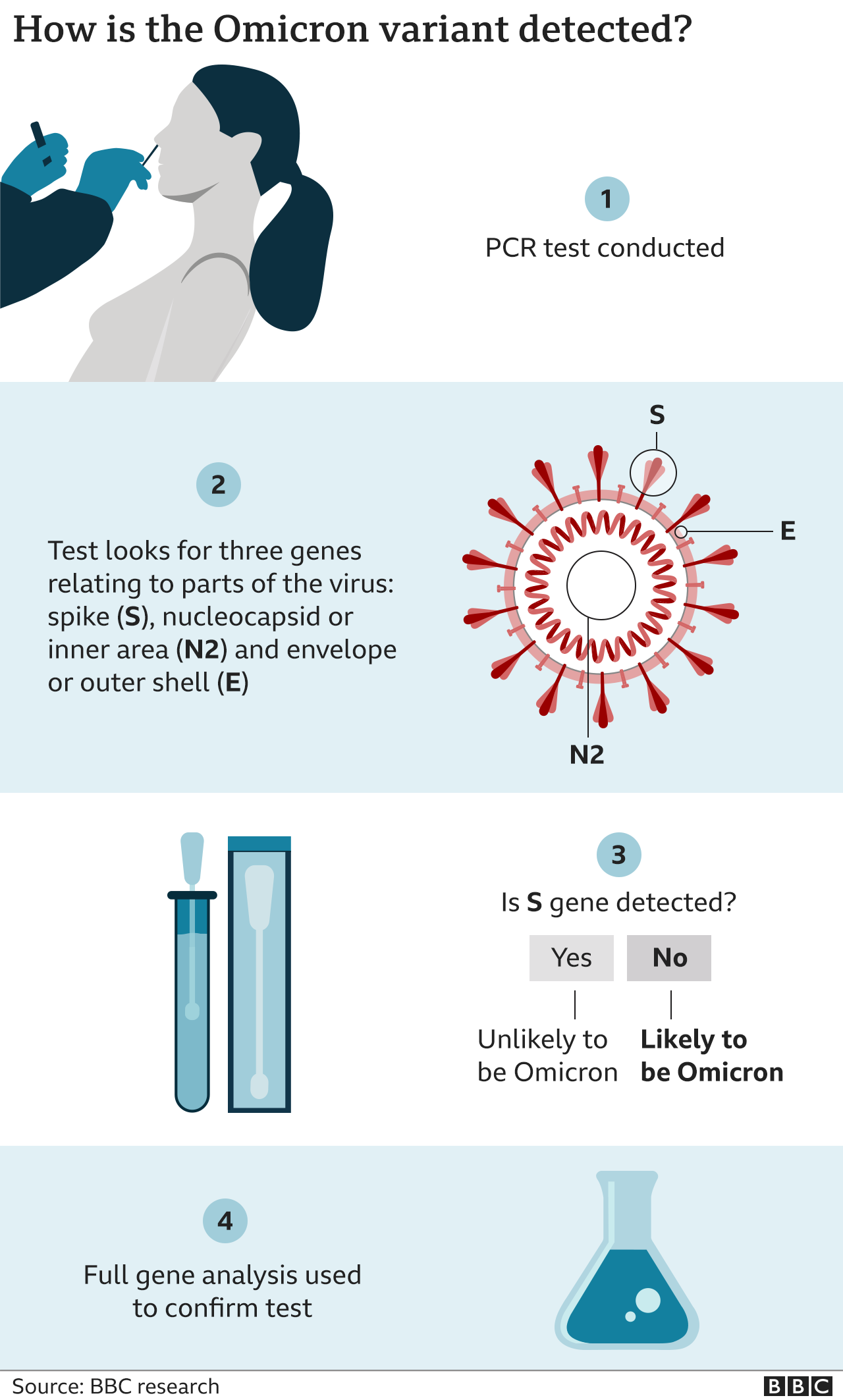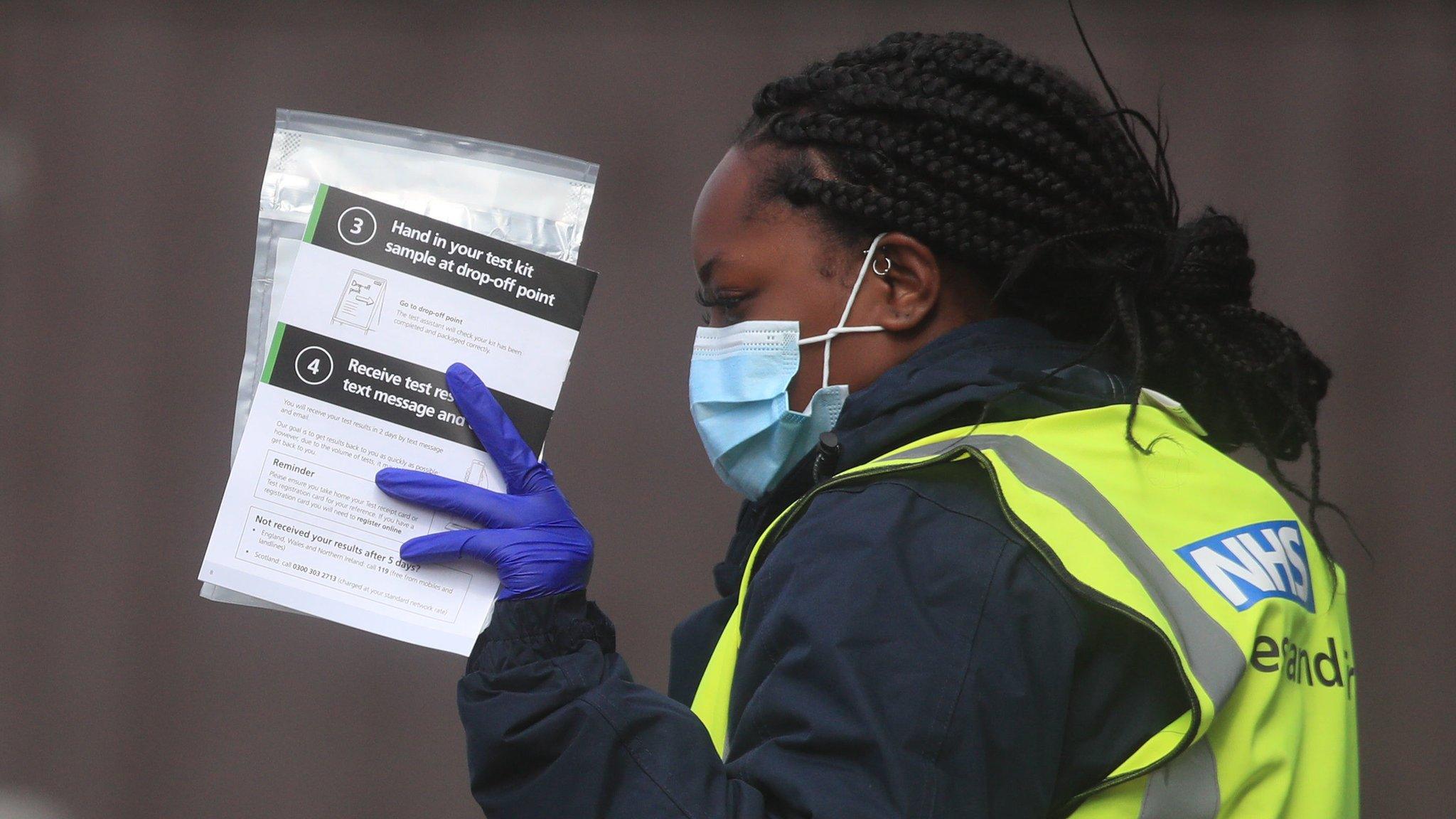Covid: Could Omicron cases lead to more rules in Wales?
- Published

The Welsh government said it was expanding its vaccination booster programme
There is a "real potential" that more restrictions could be needed to keep Covid-19 cases under control amid concern over the Omicron variant.
But "only time will tell" if they are required to control transmission rates, according to virologist Dr Richard Stanton from Cardiff University.
An Omicron variant case has been located in the Cardiff and Vale area.
The Welsh government said it was expanding its vaccination programme.
It has previously said that there was no substantial evidence the variant, which has been linked to overseas travel, would lead to a more severe illness.
Dr Stanton said: "If this virus transmits really efficiently... even if you've been vaccinated, then we have to keep transmission rates at a reasonable level.
"If the vaccine on its own is not enough to do that, then we're going to have to bring in other measures - social distancing, mask wearing and these kinds of things - and to keep those transmission rates at a sensible level."
Dr Meng Khaw, from Public Health Wales (PHW) said containing the Omicron coronavirus variant was "going to be very, very challenging".
He said 200 people have been contacted after returning to the country within a 10-day period since a UK travel red list was reinstated.
Travellers from listed countries must isolate in a hotel on entry to the UK.
Asked if he thought there could be more positive cases, Dr Khaw, executive medical director for PHW, said: "Inevitably, there will be more.


"By following up these individuals that are at greatest risk having travelled back from those affected countries, we'll have a sense of how big the problem is in Wales," he told BBC Radio Wales Breakfast.
"I sense we will have more cases emerging over the coming days.
"However, what I would say is, if we detected amongst those that are at highest risk having travelled from those countries, then, clearly, we have the ability to contain that.
"If we start detecting community cases where there is no evidence of travel, then we understand that it's spread into the community.
"And we will then put wider measures [in place] to try and delay transmission of the virus.
Wales' first Omicron variant case "no surprise"
"We know that it's highly transmissible," he added.
"But what we can do is try and delay it so that we can get public messages out about getting the booster vaccine when you're offered it, but also maintaining social distance where possible, washing your hands regularly and keep wearing face masks in enclosed spaces."
The Omicron variant, which was initially identified in South Africa, was first detected in the UK on 27 November.
Since then, cases of the variant have been confirmed in England and Scotland.
The Welsh government said it was acting on advice from the Joint Committee on Vaccination and Immunisation (JCVI) and would "announce further details of how the booster programme will be expanded shortly".

WHAT'S THE BIG IDEA?: Food for the mind, and inspiration for the soul
THE ASIAN WELSH: How immigration from the Indian subcontinent transformed Welsh health, culture and the economy

Related topics
- Published3 December 2021

- Published11 February 2022

- Published3 December 2021
